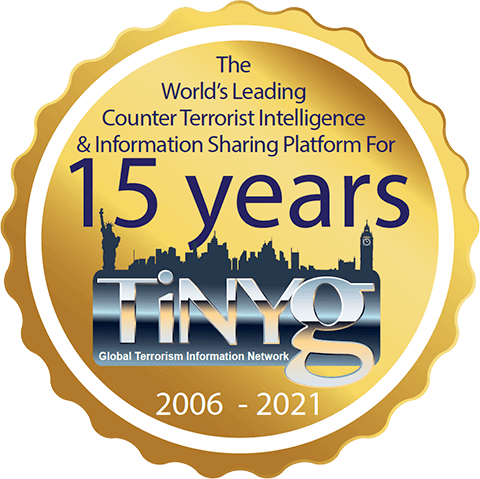01/02/24
Boston City Council finally approves $13M anti-terror grant … but not without some drama
The Boston City Council finally approved a $13 million federal counter-terrorism grant for the region on Wednesday, but the vote was not without fireworks, with several councilors pointing to a lack of transparency around how it was handled.
The anti-terror grant, blocked in December and again last week when it was sent to committee, was not on the Council agenda Wednesday, but it was put to a vote after it was pulled from the “green sheets” by Council Vice President Brian Worrell, as vice chair of the public safety committee it was referred to.
Word began to spread the night before that Worrell would be pulling the grant from the green sheets, which lists matters that are sitting in various committees, thereby bypassing a hearing that Councilors Julia Mejia and Erin Murphy had called for last week when they blocked Worrell’s last attempt to suspend and pass the grant.
When Council President Ruthzee Louijeune asked at the end of the meeting whether her colleagues would like to pull from the green sheets, no one spoke up, however, prompting Councilor Ed Flynn to question whether the grant could be put forward for a vote.
“The time for us to act on it is now,” Flynn said. “I am concerned that if we don’t pass this today, that other communities, their safety will be impacted and I can’t take that chance.”
Representatives from the police and fire union were on hand, and expecting action to be taken on the U.S. Department of Homeland Security grant, which funds counter-terrorism operations for nine cities and towns in the region.
The fire union had sent out a statement earlier in the day, which doubled as a letter to the Council, saying that the vote was happening and urging the body to vote in favor of the federal funding.
“We’re encouraged that the Boston City Council did the right thing,” Boston Firefighters Local 718 President Sam Dillon told the Herald. “They got this grant to the floor and they took a vote on it and the City Council voted to do what’s right for the City of Boston, our neighboring communities, and most importantly, public safety and the citizens we serve.”
The decision to bypass a hearing led to a lengthy half-hour discussion on the Council floor Wednesday, ultimately resulting in the grant passing by way of an 11-0-2 vote, with two councilors voting present, not because they opposed the grant, but rather because they had issues with how the process was carried out.
The two councilors, Julia Mejia and Liz Breadon, both mentioned that they did not learn that the grant was being pulled from the green sheets, and would therefore be voted on, until the night before, or morning of the meeting, respectively.
“That’s not how we do business,” Mejia said. “That is not what colleagues do when we’re really trying to move the work forward.”
Mejia had been pushing for a hearing due to the four new councilors who weren’t involved in the process that resulted in a 6-6 vote that blocked the grant at the end of last term.
She was “concerned” when a hearing was not scheduled since last week, when she objected to, and, therefore blocked Worrell’s prior motion to “suspend and pass” the grant, and said it appeared there were some back-door negotiations between some of her colleagues and the administration others weren’t privy to.
At that time, Worrell, who voted to oppose the grant last term, stated that he was calling for a vote because the “lingering questions” from other dissenting councilors had been answered since the Dec. 13 blocked vote.
He also pointed to potential operational issues that the Boston Police Department could face should the body continue to delay acceptance of federal funds, which represents the annual funding source for the Metro Boston Homeland Security Region — an entity that includes Boston, Brookline, Cambridge, Chelsea, Everett, Quincy, Revere, Somerville and Winthrop.
Worrell was hesitant to pull the grant again this week, however, stating that, when pressed to do so by Flynn, that he wanted to give his colleagues the opportunity to have some of their “outstanding questions” answered.
He later relented after some pushback from Flynn, saying councilors were provided with answers on Jan. 22, “so now is the time to suspend and pass.”
“These funds are funds that our public safety officers and Office of Emergency Management desperately need,” Worrell said.
Breadon, who voted against the funds last term, referenced that in her call for further discussion and a hearing, stating that Worrell had suggested that councilors send any questions they had, and that the grant would be voted on next week.
She pushed for the body to take its oversight role seriously, pointing to issues that had cropped up in a prior city audit report, that reflected a “significant deficiency” in how the city monitored how the grant funding was spent in the neighboring communities from fiscal years 2019-21.
“I do support this grant; I want it to be spent in a timely way but this is our job to keep a good tight oversight,” Breadon said. “I totally trust that it’s being spent appropriately but it needs to be documented appropriately as well.”
Other councilors honed in, however, on the city’s past history with major terror events, with Flynn pointing to the Boston Marathon bombing and the fact that planes involved in the 9/11 terrorist attacks launched from Logan Airport.
“I just can’t take the chance that we’re sitting on this grant and some potential emergency disaster could take place,” Flynn said.
Louijeune, who flipped from last term’s ‘no’ vote, said that while she remains “as critical as I can be of surveillance and the powers that we give police bodies, I also know that security and safety is important.”
Related Links
Back to index

